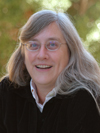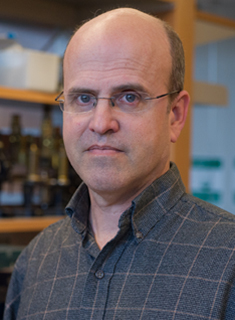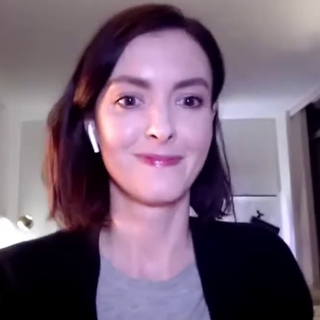Related Research Articles

Fiona Juliet Stanley is an Australian epidemiologist noted for her public health work, her research into child and maternal health as well as birth disorders such as cerebral palsy. Stanley is the patron of the Telethon Kids Institute and a distinguished professorial fellow in the School of Paediatrics and Child Health at the University of Western Australia. From 1990 to December 2011 she was the founding director of Telethon Kids.

The University of Adelaide is a public research university located in Adelaide, South Australia. Established in 1874, it is the third-oldest university in Australia. The university's main campus is located on North Terrace in the Adelaide city centre, adjacent to the Art Gallery of South Australia, the South Australian Museum, and the State Library of South Australia.

Larissa Yasmin Behrendt is an Australian legal academic, writer, filmmaker and Indigenous rights advocate. As of 2022 she is a professor of law and director of research and academic programs at the Jumbunna Institute for Indigenous Education and Research at the University of Technology Sydney, and holds the inaugural Chair in Indigenous Research at UTS.

Genevieve Bell is an Australian cultural anthropologist best known for her work at the intersection of cultural practice research and technological development, and for being an industry pioneer of the user experience field. Bell was the innagural director of the Autonomy, Agency and Assurance Innovation Institute (3Ai), which was co-founded by the Australian National University (ANU) and CSIRO’s Data61, and a Distinguished Professor of the ANU College of Engineering and Computer Science. In 2021, she became Director of the new ANU School of Cybernetics. She also holds the university's Florence Violet McKenzie Chair and is the first SRI International Engelbart Distinguished Fellow. Bell is also a Senior Fellow and Vice President at Intel. She is widely published, and holds 13 patents.

Jane Maienschein is an American professor and director of the Center for Biology and Society at Arizona State University.
Clare Alice Wright, is an American Australian historian, author and broadcaster. She is a professor of history at La Trobe University, and was the winner of the 2014 Stella Prize. Wright has worked as a political speechwriter, university lecturer, historical consultant, and radio and television broadcaster and podcaster.
Elizabeth Grant CF was an Australian architectural anthropologist, criminologist and academic working in the field of Indigenous Architecture. She was a Churchill Fellow and held academic positions at The University of Adelaide, as Associate Professor of Architecture and Urban Design at RMIT University's RMIT School of Architecture and Design, Adjunct Professor at the University of Canberra and the University of Queensland. She researched, wrote, and was an activist focused on architecture and design with Indigenous peoples as architectural practice and a social movement, and the observance of human rights in institutional architecture. Her expertise in Indigenous housing and homelessness, design for Indigenous peoples living with disability, and indigenising public places and spaces made her a regular guest on the Australian Broadcasting Corporation's Radio National and ABC Local Radio. She wrote and reviewed architectural projects for architectural magazines such as Architecture Australia, the journal of the Australian Institute of Architects, and the Australian Design Review.

Michael R. Dietrich is a professor of the history and philosophy of science at the University of Pittsburgh. His research concerns developments in twentieth century genetics, evolutionary biology, and developmental biology, with a special emphasis on scientific controversies.

Elsa Reichmanis is an American chemist, who was the 2003 president of the American Chemical Society. She was elected a member of the National Academy of Engineering in 1995 for the discovery, development, and engineering leadership of new families of lithographic materials and processes that enable VLSI manufacturing. She was also inducted into the National Academy of Inventors in 2020. She is currently the Anderson Endowed Chair in Chemical and Biomolecular Engineering at Lehigh University. She previously served on the faculty at The Georgia Institute of Technology. Reichmanis is noted for her research into microlithography, and is credited for contributing to the "development of a fundamental molecular level understanding of how chemical structure affects materials function leading to new families of lithographic materials and processes that may enable advanced VLSI manufacturing".
Svetha Venkatesh is one of the top 15 women in the world in Artificial Intelligence. She is Indian/Australian and is an Alfred Deakin Professor in the Faculty of Science, Engineering & Built Environments, in the Department of Pattern Recognition and Data Analytics at Deakin University, as well as a professor of computer science and director of the Centre for Pattern Recognition and Data Analytics (PRaDA) at Deakin. She was elected a Fellow of the International Association of Pattern Recognition in 2004 for her contributions to the "formulation and extraction of semantics in multimedia data". She was also elected a Fellow of the Australian Academy of Technological Sciences and Engineering in 2006 and an ARC Laureate Fellow in June 2017. She was elected a Fellow of the Australian Academy of Science in May 2021.
Sarah Elizabeth Smith was a British-born Australian mycologist specialising in mycorrhiza. The Australian Academy of Science described her as "a world authority on the mycorrhizal symbiosis between plants and fungi". She was an adjunct and emeritus professor at the University of Adelaide, in the School of Agriculture, Food and Wine.

Melanie Johnston-Hollitt is an Australian astrophysicist and professor. She has worked on the design, construction, and international governance of several radio telescopes including the Low Frequency Array (LOFAR), the Murchison Widefield Array (MWA) and the upcoming Square Kilometre Array (SKA). She was the director of the Murchison Widefield Array until December 2020 and is a professor at the Curtin Institute of Radio Astronomy at Curtin University and the International Centre for Radio Astronomy Research. Since August 2020, Melanie Johnston-Hollitt is the director of the Curtin Institute for Computation.
Emma Kowal is an Australian cultural and medical anthropologist, physician and scholar of science and technology studies. She is most well known for her books Trapped in the Gap: Doing Good in Indigenous Australia, and the co-edited volumes of Force, Movement, Intensity: The Newtonian Imagination in the Humanities and Social Sciences, Cryopolitics: Frozen Life in a Melting World.
Clare Elizabeth Collins is an Australian dietician who is Professor of Nutrition and Dietetics at the University of Newcastle. She serves as Director for Research in the School of Health Sciences and Deputy Director of the Priority Research Centre. She was awarded the 2017 Hunter Medical Research Institute Researcher of the Year and is a Fellow of Dietitians Australia.
Carol Lee Bacchi is a Canadian-Australian political scientist. She is the Professor Emerita of Politics at the University of Adelaide. She was the first female lecturer appointed by the university in the Politics Department and the first female to be granted tenure. She was elected a Fellow of the Academy of the Social Sciences in Australia in 2000.

Vanessa Hill is an Australian television presenter, producer and science communicator, who is best known for her YouTube series BrainCraft. Hill has hosted a PBS series of the same name since 2014.
Sabina Leonelli is a philosopher of science and professor at the University of Exeter, United Kingdom. She is well known for her work on scientific practices, data-centric science, and open science policies. She was awarded the 2018 Lakatos award for her book Data-Centric Biology: A Philosophical Study (2016).

Grace Elizabeth Karskens, is an Australian historian who is professor of history at the University of New South Wales.
The International Society for the History, Philosophy, and Social Studies of Biology (ISHPSSB) is an international academic organization founded in 1989. It is the largest and most important meeting for the fields of philosophy of biology, history of biology, and the social studies/science studies/sociological studies of biology. The society hosts a biennial meeting, supports off-year workshops, runs a monthly newsletter, and offers various types of academic prizes.
Kerrynne Liddle is an Australian politician and the first Indigenous federal member of parliament from South Australia. She is an Arrente woman and member of the Liberal Party. She was elected to the Senate on the party's ticket in South Australia at the 2022 federal election, to a term beginning on 1 July 2022. She was a journalist and corporate manager before entering politics.
References
- ↑ "AAAS Announces Leading Scientists Elected as 2020 Fellows | American Association for the Advancement of Science". www.aaas.org. Retrieved 2020-11-29.
- ↑ "Current Council and Editorial Board".
- ↑ Ankeny, Rachel. "The conqueror worm: An historical and philosophical examination of the use of the nematode Caenorhabditis elegans as a model organism". pitt.primo.exlibrisgroup.com. Retrieved 2020-11-29.
- ↑ Ankeny, Rachel. "Celebratory food traditions in the Italian diaspora: comapring [i.e. comparing] the land of opportunity and the lucky country". librarysearch.adelaide.edu.au. Retrieved 2020-11-29.
- ↑ "Organisms and Us | University of Adelaide". arts.adelaide.edu.au. Retrieved 2020-11-29.
- ↑ "People". Food Values Research Group | University of Adelaide. Retrieved 2020-11-29.
- ↑ 2020 Fellows, AAAS. Retrieved 2020-11-29.
- ↑ "2019 Election results - ISHPSSB.org". www.ishpssb.org. Retrieved 2020-11-29.
- ↑ "34 leading social scientists elected to the Academy". Academy of the Social Sciences in Australia. 2022-11-09. Retrieved 2022-11-09.
- 1 2 "Gene editing our way to better health?". ABC Radio National. 2019-06-06. Retrieved 2020-11-29.
- ↑ "More consumers support the science of GMOs, but don't see benefits". www.abc.net.au. 2016-01-07. Retrieved 2020-11-29.
- ↑ Dayton, Leigh (2014-02-14). "Organic Farmer Sues GM Farming Neighbor". Science | AAAS. Retrieved 2020-11-29.
- ↑ Bray, Heather; Ankeny, Rachel A. "Perceptions of genetically modified food are informed by more than just science". The Conversation. Retrieved 2020-11-29.
- ↑ "Current GM food labels no longer fit for purpose - Report". NZ Herald. Retrieved 2020-11-29.
- 1 2 Marshall, Andrew (2020-08-11). "Warning signs on menu for suppliers as food services adjust to COVID-19". Farm Online. Retrieved 2020-11-29.
- ↑ "Time for change: Experts back new definitions for foods produced with gene tech". foodnavigator-asia.com. Retrieved 2020-11-29.
- ↑ Ting, Inga (2013-11-05). "How Australia eats: The ultimate pie chart". Good Food. Retrieved 2020-11-29.
- ↑ "Is eating meat bad for you?". ABC Radio National. 2020-02-07. Retrieved 2020-11-29.
- ↑ "Lockdown kitchen". ABC Radio National. 2020-04-03. Retrieved 2020-11-29.
- ↑ "Religion and science collide over COVID-19 vaccine ethics". ABC Radio. 2020-08-25. Retrieved 2020-11-29.
- ↑ Gene Editing Made Simple, Australian Broadcasting Corporation, 2016-08-30, retrieved 2020-11-29
- ↑ "Rachel A. Ankeny". The Conversation. Retrieved 2020-11-29.
- ↑ "Is there an individual responsibility not to have children in cases of genetic risk?". Online Opinion.
- ↑ Ankeny, Rachel (2016-06-02). "'Good' Food? Avoiding Moral Superiority over What We Eat". ABC Religion & Ethics. Retrieved 2020-11-29.
- ↑ "How coronavirus certificates could make the disease a 'perverse' privilege". www.abc.net.au. 2020-05-11. Retrieved 2020-11-29.